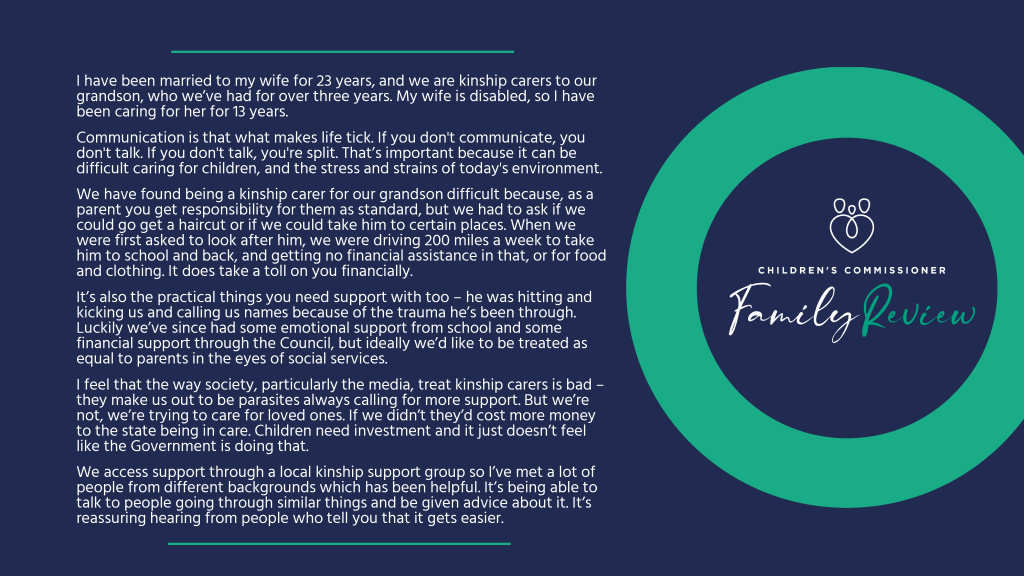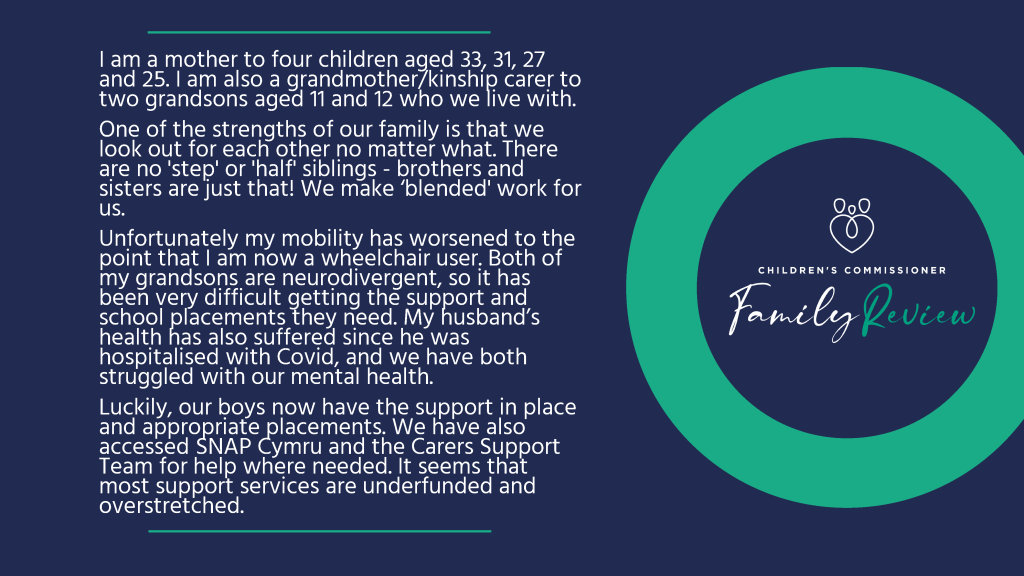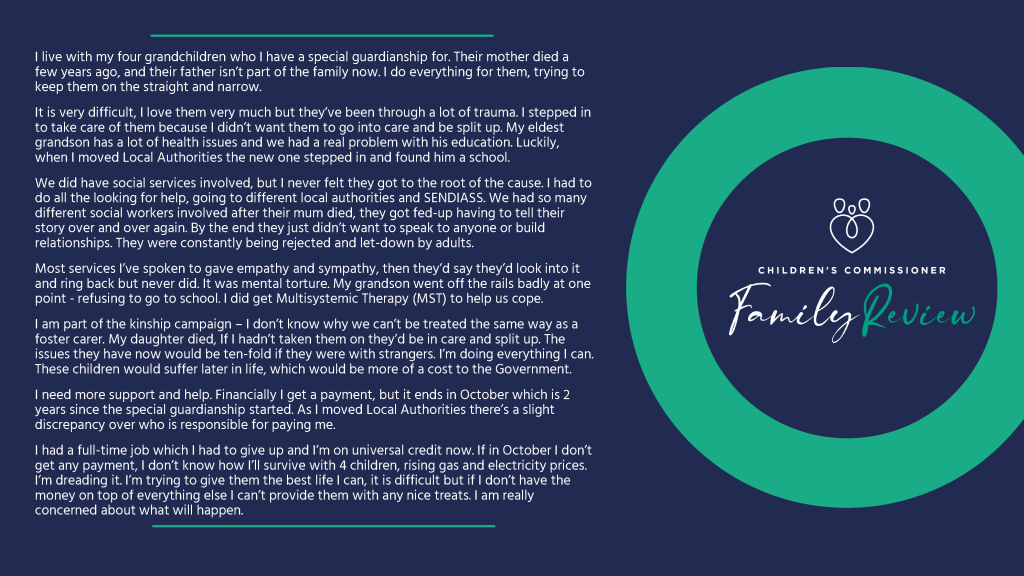As part of our work on the Family Review, we heard from kinship care families. Kinship care is when a child lives in a family arrangement with a relative or friend instead of their parents.
This Kinship Care Week and we wanted to highlight one of the ways these families contributed to our research by sharing their Family Profile – a snapshot of what families means to them, their strengths, the challenges they may have experienced, how they like to spend their time and the support that they value the most.
This week we have also shared resources for Kinship Care Week and reflections from kinship carers.









